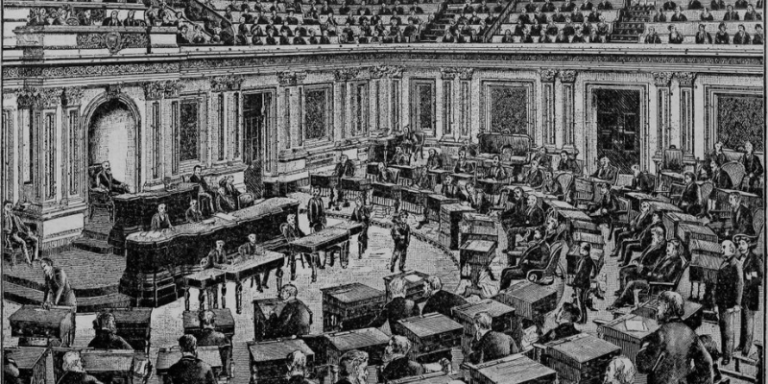Senators Show Confirmation Bias
No critical thinking in impeachment trial questions.
By: Graham Noble | January 30, 2020 | 385 Words

(Photo by Smith Collection/Gado/Getty Images)
A brief phase of President Donald Trump’s Senate impeachment trial began on Wednesday, January 29: The 16-hour period for senators to ask questions of both the president’s defense and the House impeachment managers. One might have thought that this stage of the trial would be a chance for members of the Senate to cross-examine the “other side” – for Democrats to question the case for the defense and for Republicans to challenge the House managers who seek to persuade the Senate to convict the president. Alas, this is not what happened.
Most Democrat senators addressed their questions only to the Democrat House managers. Most Republicans submitted questions only to the president’s team. In both cases, most of the questions were loaded – designed to give each side an opportunity to merely restate their arguments for conviction or for acquittal.
Confirmation Bias
The lack of cross-examination shows that few, if any, senators are attempting to challenge their own views about the president’s conduct. They were not trying to clarify, in their own minds, some aspects of the case against Trump or for his defense. The day’s session, in fact, was an eight-hour exercise in confirmation bias.
What does that mean? A description of confirmation bias is given by Shahram Heshmat, an associate professor at the University of Illinois. In Psychology Today, Heshmat writes:
“Once we have formed a view, we embrace information that confirms that view while ignoring, or rejecting, information that casts doubt on it. Confirmation bias suggests that we don’t perceive circumstances objectively.”
This describes just how the impeachment trial is now going.
An Exercise in Futility
 Republicans and Democrats submitted questions and some called upon either the president’s lawyers or the House managers to refute the answers given by the other side. At times, it felt like watching a tennis match in slow motion.
Republicans and Democrats submitted questions and some called upon either the president’s lawyers or the House managers to refute the answers given by the other side. At times, it felt like watching a tennis match in slow motion.
This question phase continues on January 30, but without more thought-provoking inquiries from either side, it adds little value to the trial – which is a great shame.
Next, the Senate will debate whether to call for witnesses and further documents. If the senators vote against calling witnesses, the articles of impeachment a final verdict will be decided. The distinguished body could have saved itself a couple of days by skipping questions and getting straight to it.
















